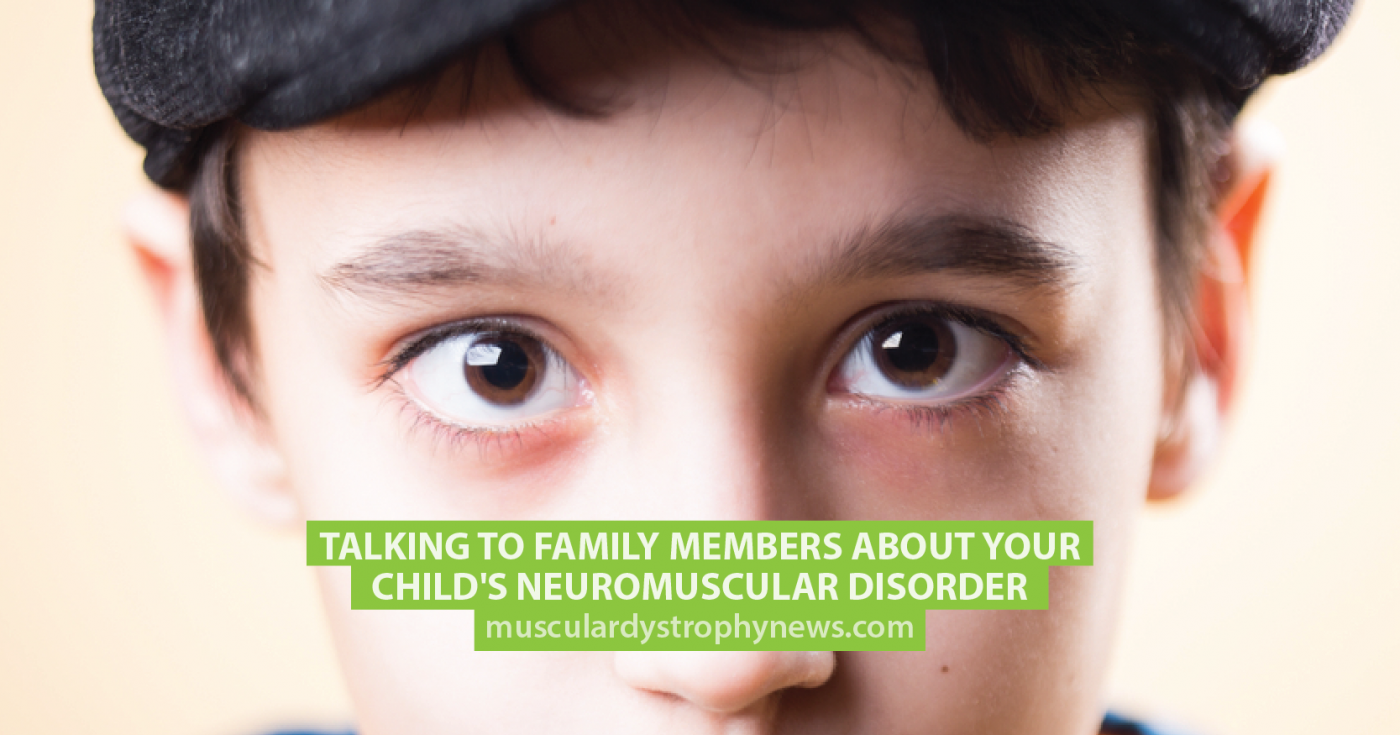Talking to Family Members About Your Child’s Neuromuscular Disorder

A neuromuscular disorder diagnosis will have a profound effect on the whole family. Younger siblings often don’t fully understand what a neuromuscular disorder is or what it means for their brother or sister.
MORE: How to talk to your child about their neuromuscular disorder.
It’s best to be upfront and honest with family members, explaining the disorder in age-appropriate language. How each person handles the information will vary, but it’s perfectly normal for them to experience the same emotions their parents did, with some extra ones such as embarrassment, guilt, and jealousy.
For older children and adults, it’s important they realize that there are vastly different outcomes and prognoses for people with neuromuscular disorders and that information gleaned from the Internet may not necessarily represent that.
As Muscular Dystrophy Canada explains, siblings of children with neuromuscular diseases can often feel left out as they don’t receive the same level of attention as their brother or sister. It’s important that they get to spend quality time with their parents and other family members where their needs are put first. Encourage them to be open and honest when they feel sidelined.
Finding hobbies and activities that the family can enjoy together will help siblings bond, although these may need to be reviewed as your child’s condition progresses. Seeking out positive role models who also have neuromuscular disorders will help children without a disorder feel more optimistic about their sibling’s future.
It’s likely that others will ask them what’s wrong with their brother or sister, so ensure they know enough about the disorder to answer accurately, which will help educate and raise awareness of the disease.
MORE: Coping with your child’s diagnosis of a neuromuscular disorder.
Muscular Dystrophy News Today is strictly a news and information website about the disease. It does not provide medical advice, diagnosis or treatment. This content is not intended to be a substitute for professional medical advice, diagnosis, or treatment. Always seek the advice of your physician or another qualified health provider with any questions you may have regarding a medical condition. Never disregard professional medical advice or delay in seeking it because of something you have read on this website.







